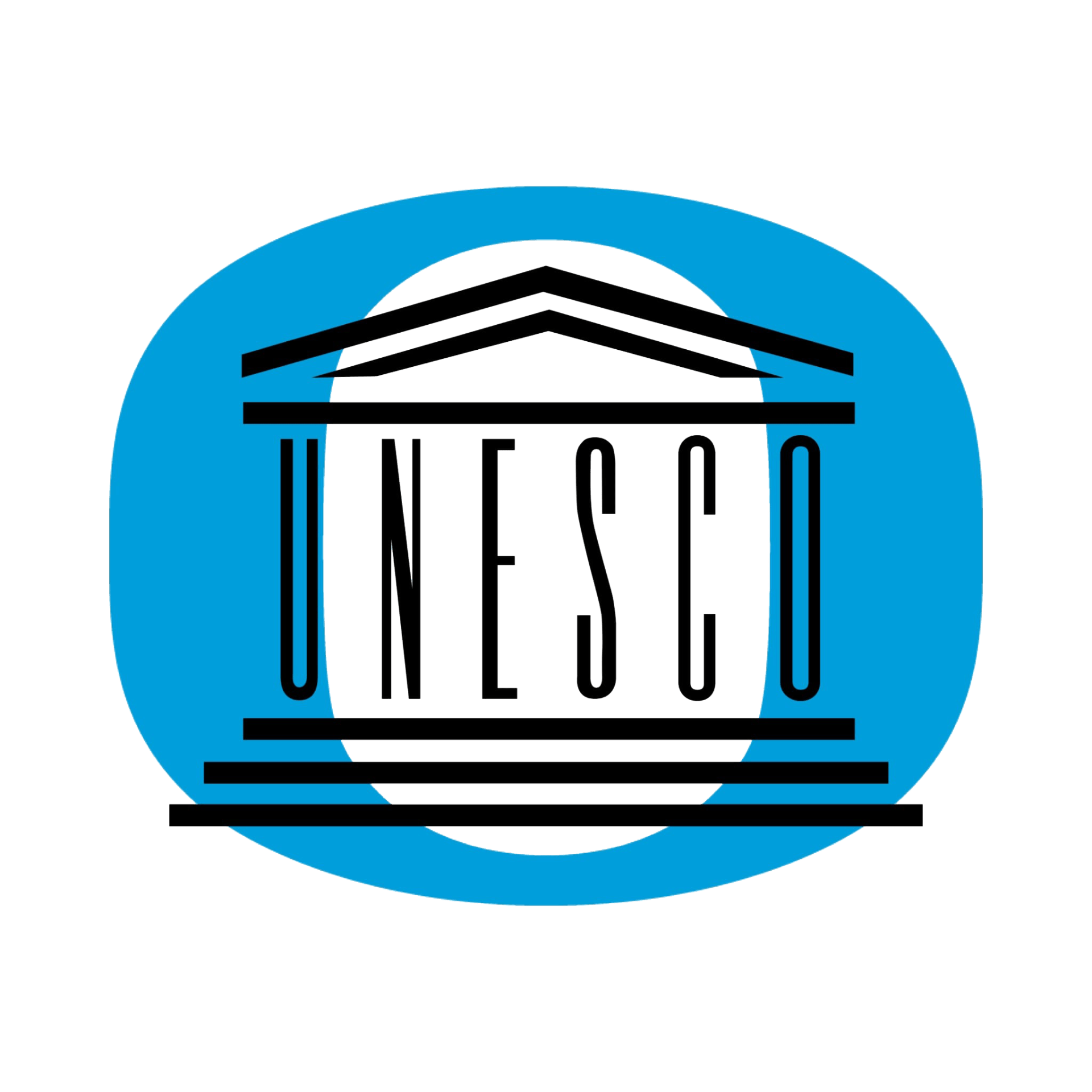Real News: Where Is It?
We invite you to listen to the UO-UNESCO Crossings Institute radio series Real News: WHERE IS IT? The series is a collection of brief discussions with University of Oregon professors whose research deals with how news consumers can best navigate news sources during an era of increasing propaganda fueled by technologies that can shroud fraud. Peter Laufer, the co-director of the Crossings Institute and University of Oregon James Wallace Chair Professor of Journalism, talks with media researchers and academicians whose research tackles the issue of fact vs. fiction, misinformation, and how best to engage a world overwhelmed by online media.
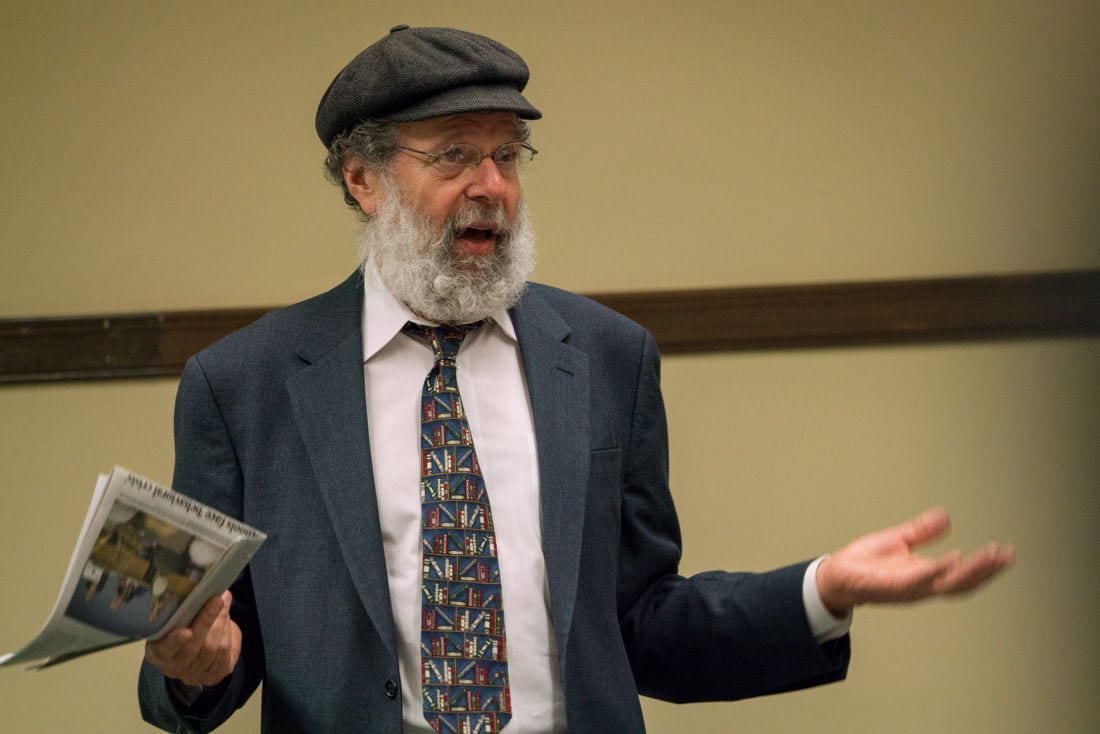
Juan Carlos Molleda, Ph.D.
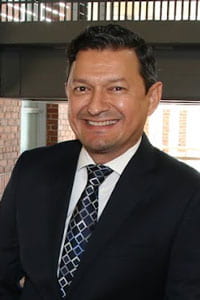
Professor Juan-Carlos Molleda, the Edwin L. Artzt Dean of the School of Journalism and Communication at the University of Oregon, speaks with Real News. A world-renowned expert in public relations and communication management, Molleda discusses with Peter Laufer the importance of content production quality and evidence in discerning information in a world awash with misinformation. Molleda believes high technical quality and minimal sensationalism are good indicators of good content. He also points to legislation in Illinois requiring media literacy be taught in high schools as a step toward creating sophisticated news consumers. Between 2007 and 2013, Dean Molleda held leadership positions (secretary, vice-chair, and chair) with the Public Relations Division of the International Communication Association.
Christopher Chavez, Ph.D.
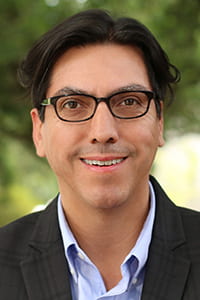
Associate Professor Chris Chavez is the director of the Oregon Center for Latina/o and Latin American Studies at the School of Journalism and Communication at the University of Oregon. His research explores advertising, how global media industries organize and reorganize collective identity, and the degree to which marginalized communities can be empowered within the constraints of marketplace dynamics. In this episode of Real News, he talks with Peter Laufer about journalism and advertising as forms of persuasive communication, both purporting to be telling the truth, and the importance of triangulation of news sources with different viewpoints to discern what is real news from what is propaganda, misinformation and disinformation.
Bish Sen, Ph.D.
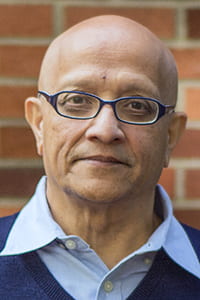
Real News guest Bish Sen, associate professor in the School of Journalism and Communication at the University of Oregon, worked as a journalist in India before coming to the United States for graduate work in journalism and communication. Sen’s research interests and teaching include mass communications, globalization, and new media. He speaks with Peter Laufer about the media in India and how to differentiate between real news and what is not news in the context of a globalized media environment.
David Hollenberg, Ph.D.
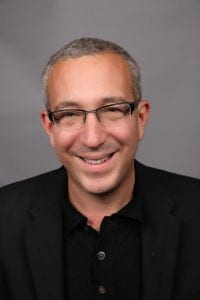
In this episode of Real News, David Hollenberg, Associate Professor of Arabic and Islamic Studies at the University of Oregon, speaks to Peter Laufer about the absence of news coverage of what the UN calls the worst humanitarian crisis in the world, the war in Yemen. As a scholar of medieval Islam and an academic who has worked with NGOs in Yemen to protect and preserve the Yemeni manuscript heritage, he shares his insights with Peter Laufer about how news consumers might look for credible news about Yemen.
Mark Blaine
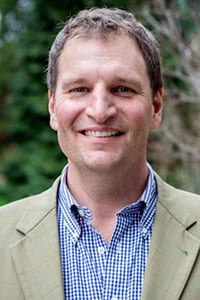
Mark Blaine is an award-winning writer, investigative reporter, and editor. His focus at the School of Journalism and Communication is on storytelling, new media and science communication. He speaks with Peter Laufer about polarized science-related news coverage, especially regarding the COVID19 vaccine and the effects of climate change. He offers advice regarding how news consumers can differentiate disinformation and misinformation from valid information by focusing on contextual reporting, and he talks about the importance of tuning in to one’s emotional reaction to the news in the continuing battle to discern fact from fiction.
David Ewald
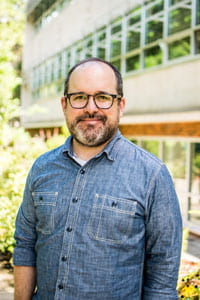
David Ewald is a professor of practice at the School of Journalism and Communication. His teaching and work focus on brand innovation. In this episode of Real News, he talks with Peter Laufer about the blurred line between branding, professionally packaged messaging, and propaganda and disinformation.
Lori Shontz
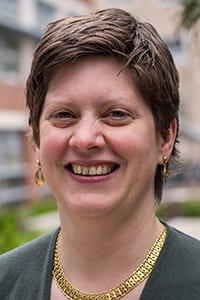
As a professor of practice, Lori Shontz specializes in the teaching of core writing and reporting skills at the School of Journalism and Communication. She speaks with Peter Laufer in this episode of Real News about the importance of authoritative sources, local media, understanding the fuzzy line between analysis and opinion, and media literacy. She co-directs Writing Central, the SOJC’s peer writing support program, and is a leader nationally in the teaching of engaged journalism, a discipline which creates ways to strengthen connections between journalists and the communities they cover.
Tim Gleason, Ph.D.
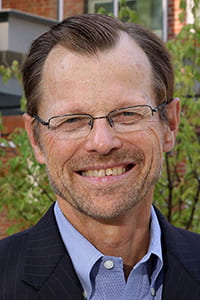
Tim Gleason is a professor and director of the Ancil Payne Award for Ethics in Journalism of the School of Journalism and Communication. He speaks with Peter Laufer about who is a journalist in the context of journalistic ethics. He stresses the need to be a critical and honest news consumer, one who is skeptical that their favorite source of information is always accurate.
Taeho Lee, Ph.D.
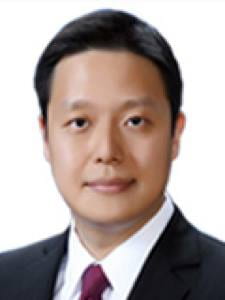
In this episode of Real News Assistant Professor Taeho Lee of the School of Journalism and Communication talks with Peter Laufer about what is believable and what has no credibility even if a piece of information is well packaged. His current research interests focus on strategic and organizational communication.
Mitchell Block
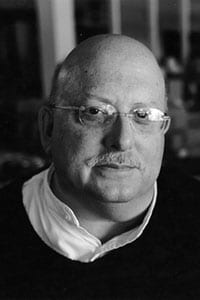
As Professor of Documentary and Film Studies and the Jon Anderson Chair at the School of Journalism and Communication, Mitchell Block speaks with Peter Laufer about how many people view documentaries as a domain of truths – what he believes is an incorrect assumption. He provides listeners guidance on differentiating between what is real and what is manipulated in the documentary realm.
Torsten Kjellstrand
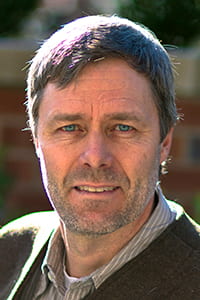
A native of Sweden, Torsten Kjellstrand is a professor of journalism practice at the SOJC and comes to academia after 25 years of work as a writer, photographer, and filmmaker. As a former journalist who has tried to tell stories that go beyond and challenge stereotyping in rural, Native American, and immigrant communities, he talks with Peter Laufer in this episode of Real News about the voices that are being lost in today’s polarized world. He speaks of new media business models that are successful in delivering real news to local and small communities in the United States.
Scott Maier, Ph.D.
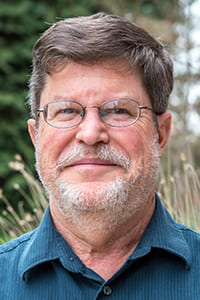
Scott Maier, a now-retired journalist and SOJC journalism professor speaks with Peter Laufer in this episode of Real News about the importance of contextual reporting vis-a-vis the use of numbers and statistics. He discusses how increasing manipulation by content creators is compounded by a lack of numeracy among journalists and the public.
Andrew DeVigal
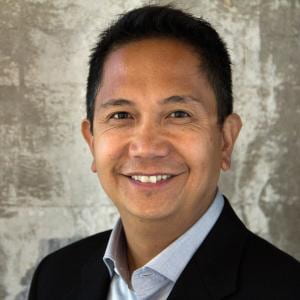
Andrew DeVigal is in conversation with Peter Laufer in this Real News episode about engaged and collaborative journalism based on the needs of audiences, journalism that that can help the public find real news. Professor DeVigal holds the endowed chair in journalism innovation and civic engagement and is the director of the Agora Journalism Center, the gathering place for innovation in communication and civic engagement at the University of Oregon School of Journalism & Communication. The Center energizes research, teaching, and learning to foster pathways for public participation and how communicators and journalists inform and relate with their communities.
Ellen Peters, Ph.D.
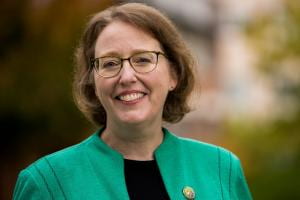
In Peter Laufer‘s Real News conversation with Ellen Peters, the University of Oregon’s director of the Center for Science Communication Research (SCR), she addresses a pressing scientific issue of our times: How should journalists tackle public rejection of scientific news. Professor Peters offers insights for understanding by highlighting the belief resistance theory and stresses the need to teach journalists about credible markers of good science.
David Markowitz, Ph.D.
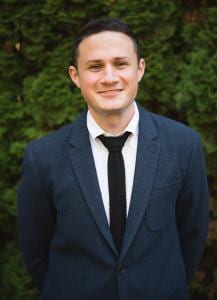
David Markowitz talks with Peter Laufer in this episode of Real News about how theories of Truth Default and Plausibility can help news consumers best navigate news sources during an era of increasing propaganda, propaganda fueled by technologies that can shroud misinformation and fraud. Markowitz is an assistant professor in the School of Journalism and Communication at the University of Oregon.
Steven Shankman, Ph.D.
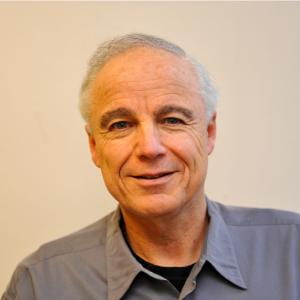
Steven Shankman, UNESCO Chair in Transcultural Studies, Inter-religious Dialogue, and Peace along with his duties as an English and Classics professor at the University of Oregon, speaks on this episode of Real News with Peter Laufer about how credibility has been problematic since antiquity. Understanding the difference between what is fact and opinion had been the preoccupation for ancient philosophers dating back to Plato, just as it is today. Shankman and Laufer serve as co-Directors of the Crossings Institute.
Hollie Smith, Ph.D.
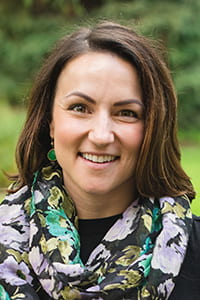
As Oregon grapples with record-high heatwaves, Peter Laufer speaks to Hollie Smith, Assistant SOJC Professor of Science and Environmental Communication, on how journalists can communicate the effects of climate change as real news to a skeptical, disinterested, or denying public. On this episode of Real News she discusses how journalism education that gives emphasis on telling both or all sides of a story leads to “false balance,” which in turn has become a tool of misinformation and disinformation.
Charlie Butler
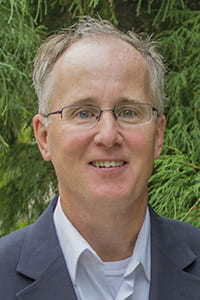
Charlie Butler, a journalism instructor at the School of Journalism and Communication and the faculty director of the SOJC Media and Social Action Academic Residential Community, speaks with Peter Laufer on this Real News episode about the importance of thorough reporting and having multiple sources when seeking – as a news consumer – credible news outlets.
Dan Morrison
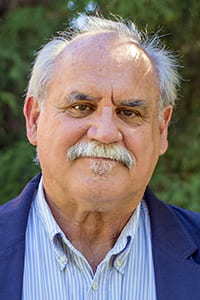
Dan Morrison teaches Photojournalism, Multimedia Journalism and Visual journalism at the UO School of Journalism and Communication. For Real News he speaks with Peter Laufer about manipulation and alteration in photojournalism. With the iconic image of the U.S. Flag Raised on Iwo Jima as an example, Morrison highlights examples of staging photos to alter reality.
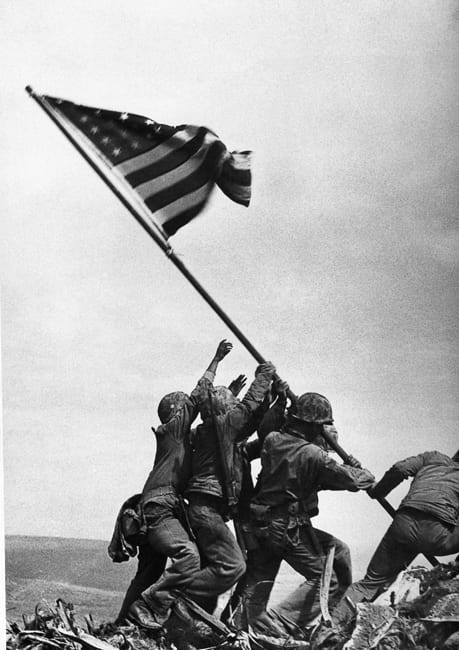
Regina Lawrence, Ph.D.
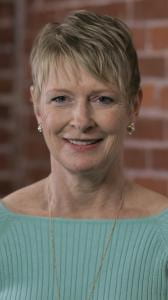
Regina Lawrence is a nationally recognized authority on political communication, civic engagement, gender and politics, and the role of media in public discourse about politics and policy. For Real News she speaks with Peter Laufer about insights and useful tools to navigate the complex terrain of political news in today’s world. Professor Lawrence is the Associate Dean of the School of Journalism and Communication in Portland and Research Director for the UO Agora Journalism Center.
